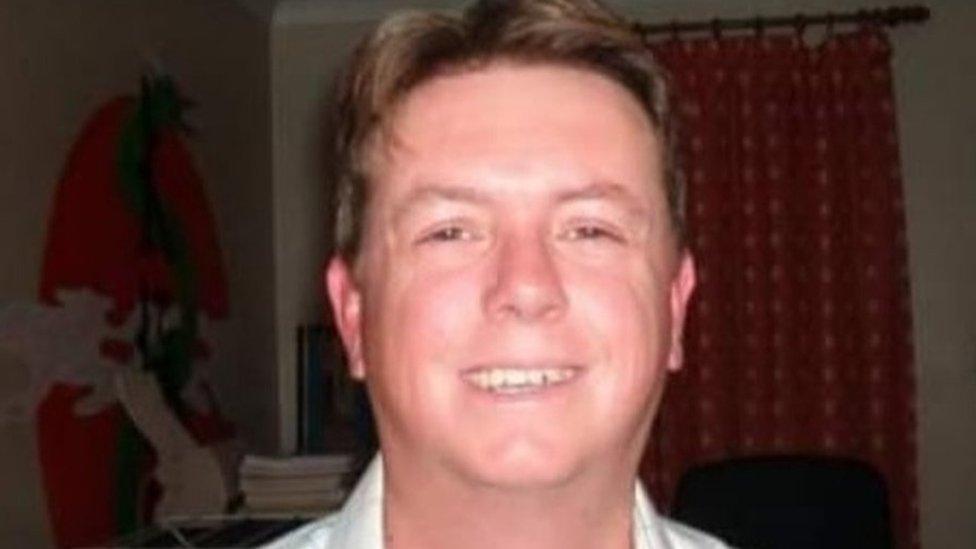End-of-life doctor admits 'amending prescriptions', tribunal hears
- Published

Dr Gregg worked at Peterborough City Hospital
An anaesthetist who admitted altering drug doses for end-of-life patients has told a tribunal hearing he "let myself and my patients down".
Dr Andrew Gregg admitted increasing drug levels in prescriptions while working at Peterborough City Hospital.
They were an "ill-considered shortcut to avoid having to write new prescriptions", the Medical Practitioners Tribunal panel was told.
He denies that his actions hastened the death of one of his patients.
Dr Gregg worked for North West Anglia NHS Foundation Trust from 2003 but was suspended in 2016 and subsequently dismissed from the trust in 2019.
His actions are alleged to have hastened the death of "patient A", which the BBC understands to be 41-year-old Simon Scott.
Mr Scott, from Oakham in Rutland, died with acute myeloid leukaemia on 4 January, 2016.

Simon Scott died with acute myeloid leukaemia in January 2016
Dr Gregg admitted his decision to withdraw active treatment was "hasty" but told the panel he "had, in my view, a very poor prognosis".
"There was no realistic chance of weaning him from the ventilator", he added.
But he accepted that a more in-depth multi-disciplinary discussion "should" have taken place first.
He admitted increasing infusion rates of drugs to "avoid discomfort and distress".
'In poor light'
During the hearing, the panel found there was no case to answer over allegations Dr Gregg hastened the death of "patient B", who died after suffering a cardiac arrest while driving a lorry in June 2013.
Police previously confirmed Dr Gregg was arrested on suspicion of gross negligence manslaughter and interviewed over two patient deaths. He was never charged with any offence.
He admitted allegations raised in relation to four other patients between 2012 and 2015 in which he was found to have amended prescriptions to increased levels.
He said he was "titrating to effect", a medical phrase meaning adjusting the dose to maximum benefit.
Dr Gregg apologised to the family and friends of the patients - and to doctors "who had their prescriptions questioned".
He has since taken up a post at another hospital but told the panel hearing he has "no desire" to return to end-of-life care.
He acknowledged his failings were "matters which will cast me in a very poor light".
The hearing continues.

Find BBC News: East of England on Facebook, external, Instagram, external and Twitter, external. If you have a story suggestion email eastofenglandnews@bbc.co.uk, external
Related topics
- Published15 December 2021
